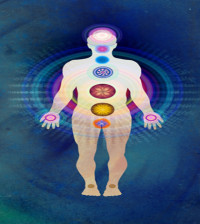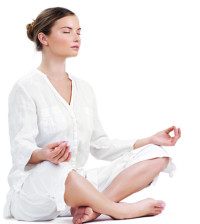- 5 Tips To Finding Peace Within Yourself
- The Do’s and Don’ts of Learning How to Accept Yourself
- How to Find Your Inner Peace and Transform Your Life
- 8 Benefits of Having an Open Mind and How to Get One
- Learn How To Be A Happier Person
- What Is The Meaning Of Life?
- Laws of Abundance – The Riches of Love and Joy
- How to Be Laid Back By Following These 9 Simple Strategies
- The meaning of confucius’ golden rule – 4 practical ways of living it
- 3 methods of unleashing the power of contentment in your life
10 Ways to Overcome Depression and Anxiety

Anxiety and depression are two conditions that go hand in hand. When you are depressed, you often feel anxious, can’t sleep, and are irritable. Also, when you have anxiety, you tend to get sad and blue. Whether this is a short-term problem or a lifelong issue for you, there are some self-help strategies for battling depression and anxiety. Find out what you can do today to uplift your mood and stay calm in times of stress.
1. Be Active
Exercise provides you with many benefits. Not only is physical activity good for your heart, it also helps your mind. Some things you can do to increase your activity include taking the stairs and bypassing the elevator, parking your car in the farthest spot in the lot, and walking your dog.
2. Stay Positive
If you are used to negative thinking, this may be difficult for you at first. It takes work and persistence to learn positive thinking and live a life of gratitude. The sooner you change your mindset, the better. Hang out with positive people, look on the bright side, and try to find something good in everything.
3. Get Enough Rest
Caffeine and other stimulants can interfere with your rest. Make it a habit of going to bed at the same time each night to assure you at least 7 hours of shut eye. Also, avoid loud music and action television right before bed. This hypes you up and can interfere with sleep. Instead, take a warm bath, listen to soft, classical music, or read a book. One of the simplest ways to overcome depression and anxiety is to rest more.
4. Get the Right Vitamins
The B vitamins are responsible for good emotional health. Deficiency of the B vitamins has been known to trigger depression. Take a supplement, or eat a diet rich in fruits, vegetables, and lean cuts of meat.
5. Get Out More
Isolating yourself only makes depression and anxiety worsen. Turn to family or trusted friends to share what you are going through. Go to social functions and events and mingle with the crowd. Meet new people and make friends. Also, you may find it beneficial to join a support group. Being around others who are dealing with depression lets you know that you are not alone.
6. Let the Sun Shine In
Expose yourself to some sunlight every single day. Sun stimulates the production of serotonin, the mood stabilizing chemical produced in the brain. Take a brisk walk outdoors, have your coffee on the porch, or eat your lunch on the patio when possible.
7. Get Therapy
There are many forms of therapy available for people who are depressed and anxious. Cognitive behavior therapy is a type of psychotherapy that helps you discover ways to cope with life situations. One of the best ways to overcome depression and anxiety is through therapy.
8. Meditate
A recent randomized controlled trial found that mindfulness-based meditation combats depression. Doctors at the University of Oxford reported this in Science Daily. Meditation is a technique where you sit silently and focus your thoughts on peaceful feelings. The purpose of meditation is to allow the person a stress-free time to relax and rebuild. Meditation boosts serotonin production, enhances memory, and improves cognition.
9. Adopt a Pet
If you don’t already have one, get a pet at your local animal shelter. Not only are you doing good for the community, you are doing something positive for yourself. Research supports that people with pets have lower percentages of depression and anxiety than those who don’t have a Fido or Fluffy.
10. Volunteer
Whether it’s the homeless shelter or your local hospital, find a place to volunteer. When you do something to help the less fortunate it gives you a form of ‘caregivers high’. This comes from the production of endorphins that are released in response to your actions of volunteering. One way to be less down is to help those in need.








































You must be logged in to post a comment Login